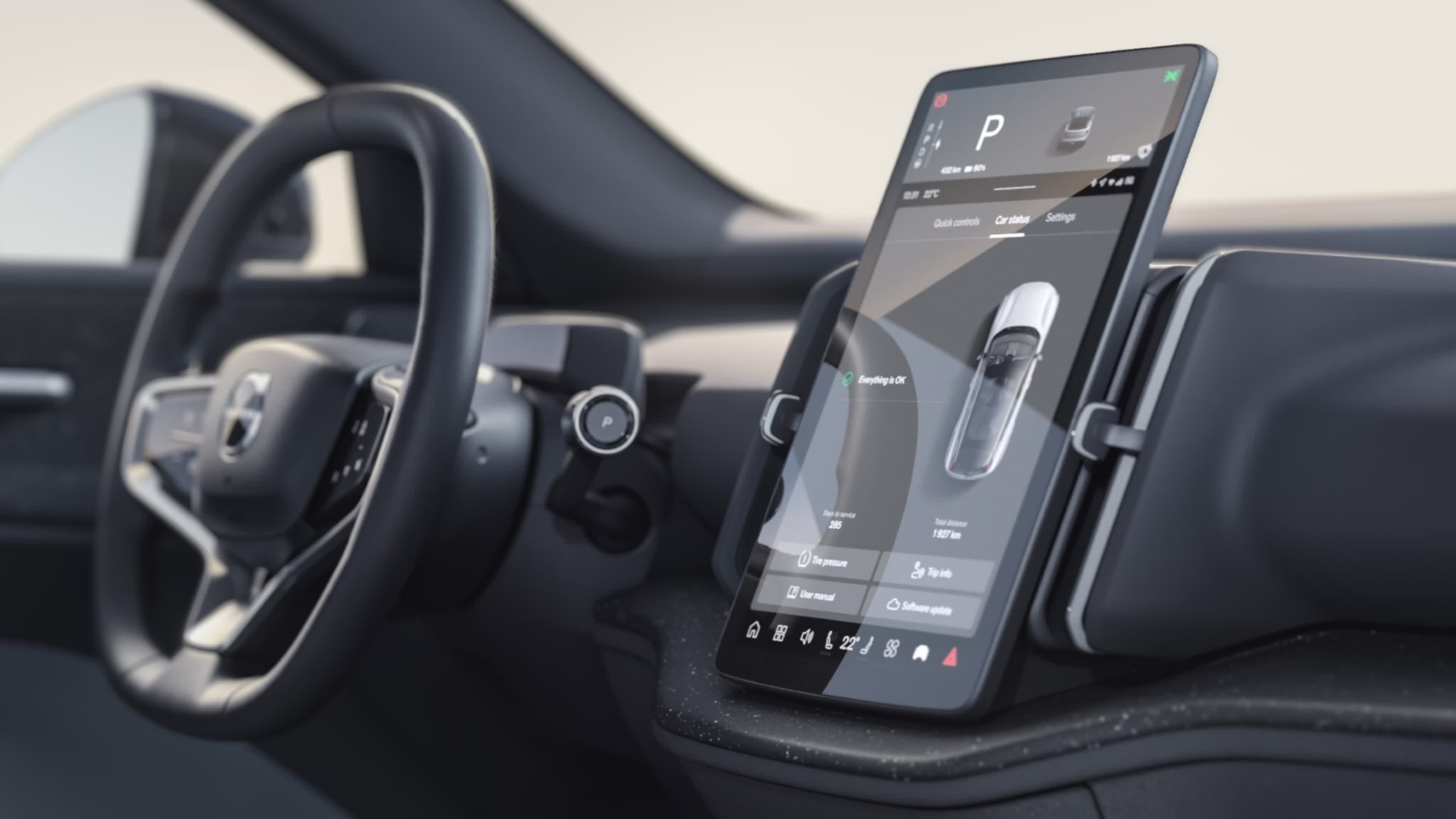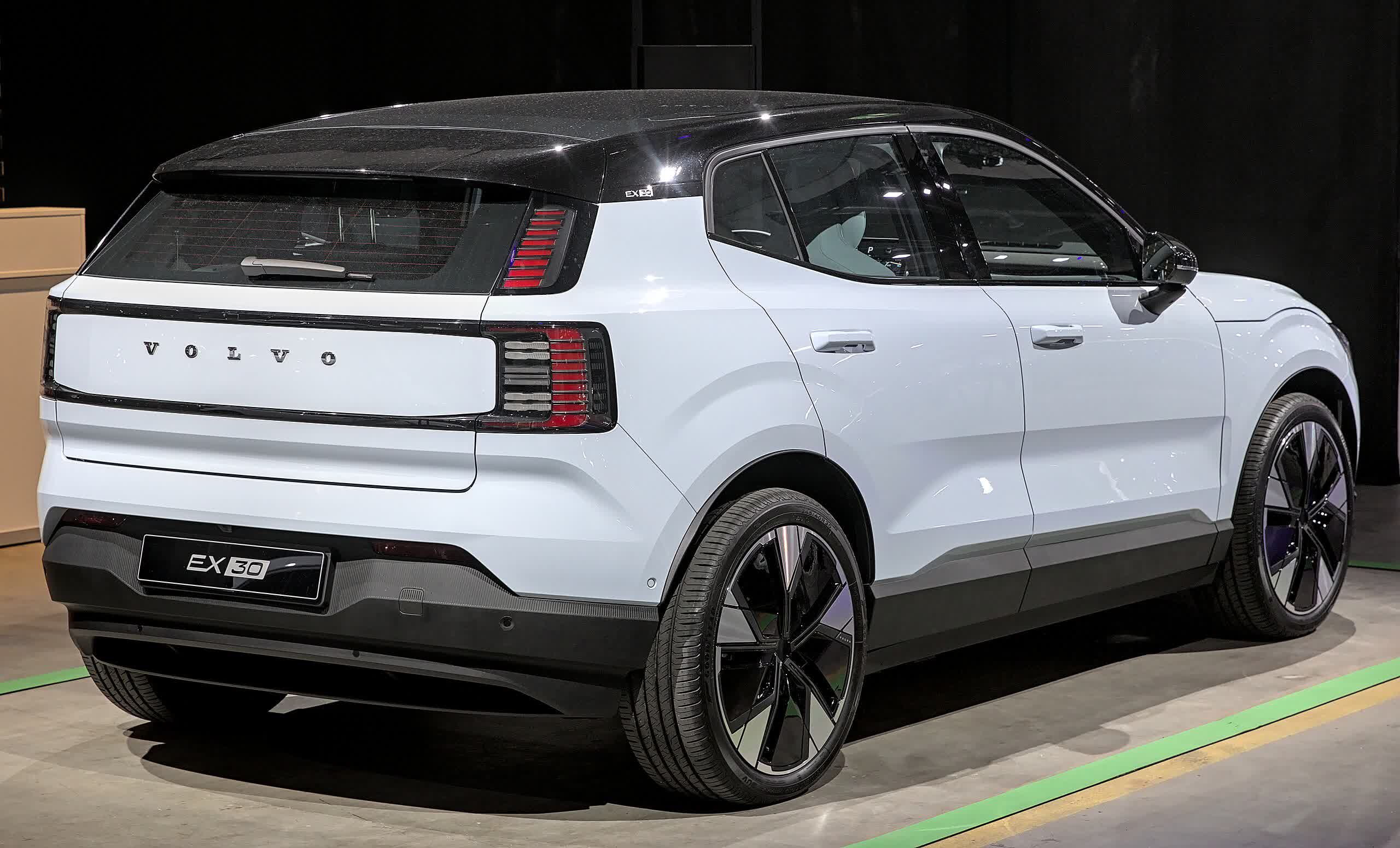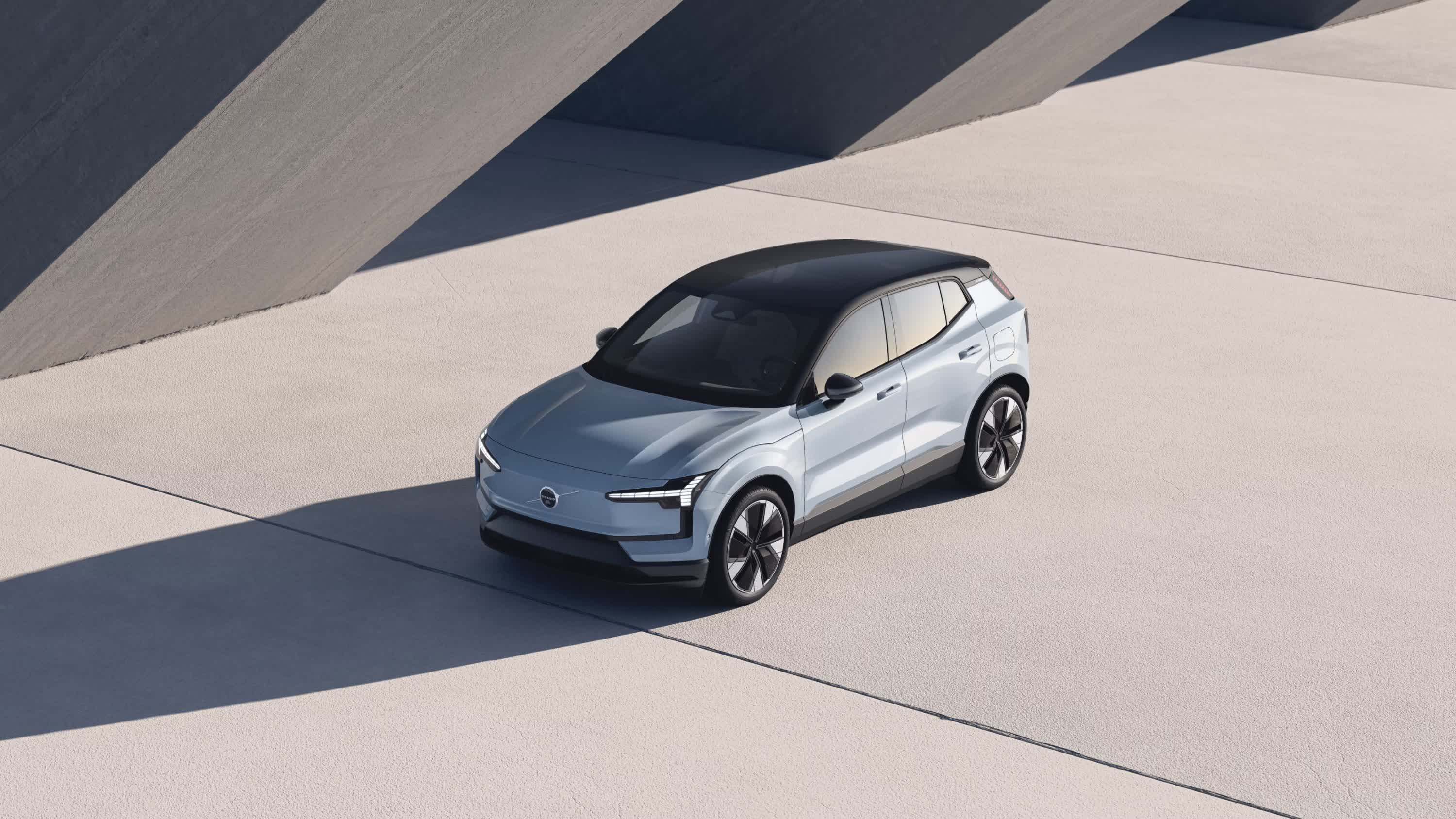The big picture: As vehicles become rolling computers loaded with code, the potential for bugs and flaws multiplies. For automakers accustomed to mechanical engineering, the shift to software-defined vehicles presents an entirely new challenge. One wrong line of code can potentially ground thousands of cars, as Volvo is finding with its EX30.
Volvo has been forced to issue a recall for every single EX30 electric crossover it has produced so far – nearly 72,000 in total – due to a seemingly minor software glitch.
The issue causes the EX30's giant center display to randomly switch into a diagnostic "test mode" during startup. When this happens, vital driving information like the speedometer reading gets blocked from view and is replaced by an obscure diagnostic screen.
You might be thinking, "big deal, just look at the gauge cluster instead." The problem is, the EX30 has no traditional gauge cluster or analog speedometer. All vehicle stats and readings are displayed exclusively on the massive center touchscreen.

When that screen malfunctions and displays the test mode overlay, drivers are essentially flying blind, with no information on their speed or other critical stats. This is far from ideal when piloting a nearly two-ton EV down the highway.
The flaw first came to light last month when Volvo issued a smaller recall covering 1,255 EX30s in Australia, warning that the issue "may potentially increase the risk of injury or death to vehicle occupants and other road users."
Instead of requiring owners to visit the dealership, Volvo has chosen to provide an easy over-the-air software update to address the issue. Owners simply need to download and install version 1.3.1 to resolve the glitchy screen behavior.

The Volvo EX30 launched last year, quickly becoming one of Europe's top EV sellers and racking up over 35,000 sales through May, according to Volvo. That doesn't come as a surprise considering it's one of the most affordable EVs around, starting at $34,950 in the US and 36,000 euros in Europe. In fact, research firm DataForce pegs it as Europe's third best-selling EV so far in 2024, behind only Tesla's Model Y and Model 3.
Volvo's presence in the EV market extends beyond cars alone. Last month, the automaker unveiled its first "production-ready" autonomous semi-truck, developed in collaboration with autonomous driving startup Aurora. Rated for Level 4 self-driving, the truck can operate mostly on its own, with a human driver taking over when needed.
